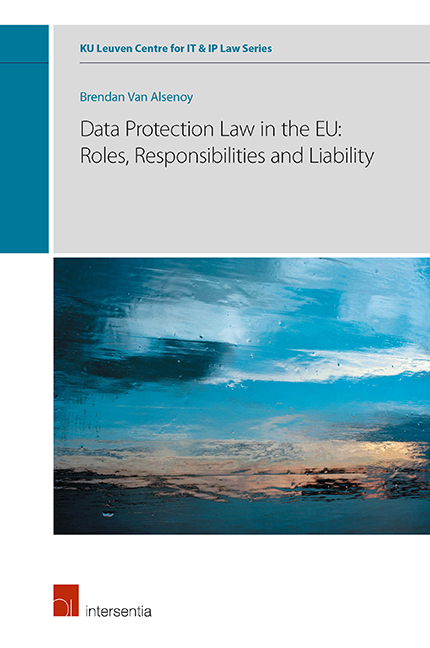Book contents
- Frontmatter
- Foreword
- Note to the Readers
- Acknowledgments
- Abstract
- Contents
- PART I INTRODUCTION
- PART II STATE OF THE ART
- PART III HISTORICAL-COMPARATIVE ANALYSIS
- Chapter 1 Introduction
- Chapter 2 The Emergence of Data Protection Law
- Chapter 3 National Data Protection Laws before 1980
- Chapter 4 International Instruments
- Chapter 5 National Data Protection Laws after 1981
- Chapter 6 irective 95/46/EC
- Chapter 7 General Data Protection Regulation
- Chapter 8 Conclusion
- PART IV USE CASES
- PART V RECOMMENDATIONS
- Bibliography
- Miscellaneous Endmatter
Chapter 3 - National Data Protection Laws before 1980
from PART III - HISTORICAL-COMPARATIVE ANALYSIS
Published online by Cambridge University Press: 26 June 2019
- Frontmatter
- Foreword
- Note to the Readers
- Acknowledgments
- Abstract
- Contents
- PART I INTRODUCTION
- PART II STATE OF THE ART
- PART III HISTORICAL-COMPARATIVE ANALYSIS
- Chapter 1 Introduction
- Chapter 2 The Emergence of Data Protection Law
- Chapter 3 National Data Protection Laws before 1980
- Chapter 4 International Instruments
- Chapter 5 National Data Protection Laws after 1981
- Chapter 6 irective 95/46/EC
- Chapter 7 General Data Protection Regulation
- Chapter 8 Conclusion
- PART IV USE CASES
- PART V RECOMMENDATIONS
- Bibliography
- Miscellaneous Endmatter
Summary
NATIONAL DATA PROTECTION LAWS BEFORE 1980
297. OUTLINE – This chapter will analyse three of the earliest data protection laws, namely the Hessian Data Protection Act of 7 October 1970, the Swedish Data Act of 11 May 1973 and the French Law on Informatics, Files and Liberties of 6 January 1978. The objective of this analysis is to ascertain how the early data protection laws allocated responsibility for complying with the norms they contained. For each instrument, the analysis will commence with a discussion of the origin and development of the instrument in question. Next, the scope ratione materiae of each instrument shall be discussed, followed by an overview of the basic protections it contains. Finally, a separate section shall be dedicated to an analysis of how each instrument allocates responsibility and liability.
THE HESSE DATA PROTECTION ACT (1970)
ORIGIN AND DEVELOPMENT
298. A TALE OF HOPE AND DISENCHANTMENT – Following the “Great Hessen plan” of 1965, the German Federal State (“Land”) of Hesse embarked upon a large-scale data collection exercise. The goal of this exercise was to assist the government in its development of long-term policies in economic and social matters, such as finance and social security. In 1969, the government enacted legislation which authorized the creation of an integrated data processing system for state and communal data. By using automated data processing techniques, policy makers would be able to “replace the most intuitive political decisions by rational conclusions based on knowledge of all the relevant data”. Towards the end of the ’60s, however, euphoria regarding the benefits of automation started to dwindle, as critical reflections regarding the consequences of such automation began to increase. Two concerns in particular permeated the debate: destabilization of the balance of powers (“Gewaltenteilung”) and the loss of privacy (“Verlust jeglicher Privatheit”).
299. UPSETTING THE BALANCE – A first area of concern related to the balance of power between the legislature and the executive. Some worried that the use of automated data processing techniques would unduly strengthen the power of the executive vis-à-vis the legislative branch (by providing the former with an “informational advantage” over the latter). A second set of concerns revolved around the relationship between the State and its citizens.
- Type
- Chapter
- Information
- Publisher: IntersentiaPrint publication year: 2019



